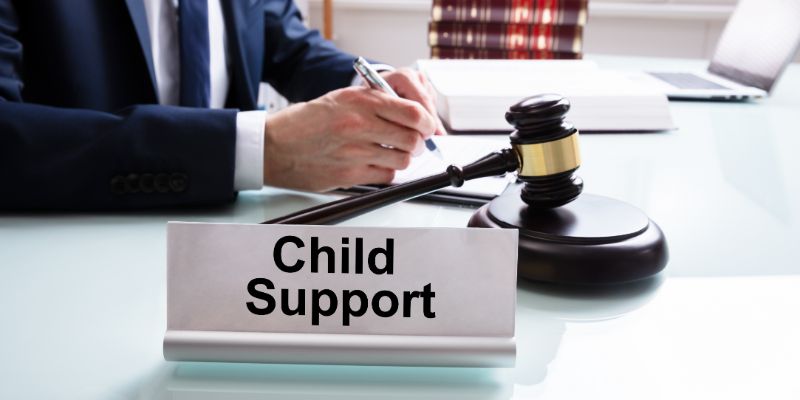No matter your relationship with your former spouse and children, paying mandatory child support can be stressful, confusing, and emotionally draining. Knowing what determines your child support payments and how they might change can help you stay on top of your payments and better understand your responsibilities. Illinois uses the following factors to determine your child support payment.
Illinois uses what is called the income shares model to determine child support. This means that, during the process of a divorce or legal separation, the court will look at your income and combine it with the other parent’s income. This will determine how much financial support your child would have if you lived with the other parent, which will be divided to determine how much each parent needs to contribute.
The court will also consider nuanced factors, like if you have a significantly higher or lower income than your child’s other parent. If you make a lot more money, you will likely be expected to contribute more than the parent with the lower income and vice versa.

If you have joint custody of your child, you might end up paying less in child support than a parent without joint custody, who is the non-custodial parent. This is because, if you have joint custody, you are directly contributing to your child’s life and providing care for your child during your period of custody. Since you are using your resources to support your child at that time, the court will often reduce your financial burden. However, every case is different, and your custody might not impact your child support, or it might impact your child support in different ways. A family law attorney can help you better understand the implications of your specific custody arrangement on your child support payments.
The more children you have, the more expensive child-rearing becomes. There will be more food, clothes, and school supplies to buy, more doctors' and dentists’ bills, and more fees for extracurricular activities. Thus, the more children you have, the more financial support you need to care for them. The court will typically calculate your child support payment per child, as individual kids often have their own individual needs.
Typically, your child’s needs will fall under the mandatory child support payments based on your income. However, every child is unique, and some might have more expensive needs than others. For example, your child might have a health condition that requires frequent visits to a doctor or an educational need that requires a tutor to address. If such factors are involved, you can expect your child support payments for that child to rise.
Families can be complicated, and you might be making mandatory payments to other people, such as previous spouses or children from another marriage. You might also hit hard financial times and be concerned about paying for both your housing and your child support. If you can prove that these things are happening, your payment might go down to account for all your other responsibilities. In addition, if you lose your job and your income changes, don’t panic about how you will make your payments. If you have proof of what happened, you can file a petition with the court, which will review it to determine if your child support payments should be lowered.
A: Illinois’ child support payments are determined primarily by your income and the income of your child’s other parent. The amount that you pay in child support will be based on the combined income, along with your child’s needs and your other expenses. Consulting a legal professional can help you estimate what your child support payments may be like and what factors in your life might raise or lower them.
A: You can track your child support payments in Illinois by using the online state portal, which is called the Illinois State Disbursement Unit (ILSDU). You can also maintain your own personal records on paper or electronically and keep track of all payment receipts. If, for some reason, you have problems tracking your payments, or you find discrepancies in payments someone owes you, you can contact a family law professional for help.
A: Your child support payments might go down if you have a significant change in circumstances. For instance, if you can prove that you lost your job and your income has fallen, you might be able to lower your child support. You would need to collect credible documentation and attempt to discuss the situation with your child’s other parent. If negotiation doesn’t work, file a formal petition with the court to modify the existing child support arrangement.
A: Typically, your child support payments in Illinois will end when your child turns 18. However, every situation is different, and you might be in a situation where child support extends past your child’s 18th birthday or ends earlier. For example, if your child has a disability that makes it difficult to support themselves, you might have to keep paying for several years. On the other hand, if your child is legally emancipated before 18, your payments might cease.
At Vahey Law & Mediation, LLC, we understand how confusing it can be to sort through the state of Illinois’ complicated child support rules. Whether you have questions about your child support, need help navigating a complex divorce, or are considering a petition to modify a child support arrangement, we can help. Our team is here to respectfully listen to your situation and advocate for your needs. Contact us today to consult with an experienced lawyer.




Notifications